Top 10 Pay-Per-Click Advertising Mistakes To Avoid

Pay-per-click (PPC) advertising, for the unacquainted, is a valuable form of digital marketing where businesses and organizations pay a fee whenever one of their ads gets clicked. It’s an excellent way to promote a brand, product or service, and it’s ideal for brand new websites that attract little organic traffic.
The concept of PPC advertising is refreshingly simple: you create a series of ads and link them to particular keywords and phrases. When a user searches those keywords and phrases, your ads get displayed according to a set of variables including relevancy and the price you ‘bid’ for those keywords.
There are many ways in which digital marketers can utilize PPC marketing, but most PPC campaigns center around search engine advertising, aka the ads that get displayed on search engine results pages (or SERPs).
In general, the better an ads’ quality score and relevance to the search terms, the higher up its position will be in the SERPs.
WHAT ARE THE ADVANTAGES OF PPC?
Regardless of whether you have a new or established site, your ultimate goal is to drive more targeted traffic to it. Doing so will mean that you can enjoy higher conversions and therefore the cost of generating sales leads will be lower.
One of the best ways to increase traffic to a website, as mentioned, is through the use of PPC advertising. As an advertiser, you remain in full control of the ad content, the price you pay and where those ads get displayed. What’s more, you can ensure that your ads get targeted to the right audience, reducing your overall advertising costs.
PPC ads can target website users according to:
- Geographic location
- Age group
- Language
- Device type (desktop or laptop computer, smartphone, tablet, etc)
- Device-operating system (Windows, Mac OS X, iOS, Android)
Google AdWords and Bing Ads are two of the most popular PPC advertising platforms. Because PPC advertising offers comparatively low prices and targeted advertising features compared to traditional advertising, thousands of businesses and organizations use these platforms.
WHAT ARE THE DISADVANTAGES OF PPC?
It’s no secret that pay-per-click advertising offers marketers a powerful way to reach out to their target audience – PPC ads aren’t just shown on the side of SERPs, but also on blogs and other websites that publish relevant ad content to their viewers. PPC ads are also visible on mobile devices, especially in free apps that make revenue by displaying relevant content.
However, there are some downsides to PPC advertising. When you start setting up ads, you will soon notice that there are a plethora of options that you must use or disable before you can get going. The platforms used for PPC campaigns are rather in-depth. With such a vast array of features and functionality, it can take a long time to navigate your way through them all to determine which ones apply to your campaign requirements.
Additionally, you will need to devote a decent chunk of time to researching the relevant keywords for your ads. They must be relevant to the content on the target URL (i.e., your website). Many people make their advertising too specific and get little to no clicks. For example, if you specify only a small subset of your potential audience, you might find that your PPC advertising campaign is a waste of time and money.
Furthermore, many marketers are unable to identify the right requirements for their campaigns. For instance, there is often the temptation to leave ads running 24 hours a day, seven days a week. However, if you are advertising a service that only operates during business hours, it’s best to limit your ads to these times.
WHAT ARE THE MOST COMMON PPC ADVERTISING MISTAKES?
First and foremost, make sure you aren’t caught up in the hype of PPC advertising without considering what your ads are linking to.
As with any website content, your landing page must be:
- Easy to read
- Desktop and mobile friendly
- Relevant to your advertisers
- Clean, i.e., not containing any content that is against your PPC provider’s terms of service.
Sadly, many marketers pay too much attention to their ads and leave their website’s landing page as an afterthought. This affects their PPC campaign’s success as the Google AdWords platform takes into account each landing page’s relevancy and content in determining the quality score of each ad.
So start by checking that your website is high-quality, then when you’ve done so, work through this list to avoid stumbling into the common PPC advertising mistakes or mishaps.
1. NOT SETTING UP RE-MARKETING
Junk traffic should be avoided, so even though you want your ads to appear on search engines such as Bing and Google, you need to carefully ensure you target the right audience through remarketing.
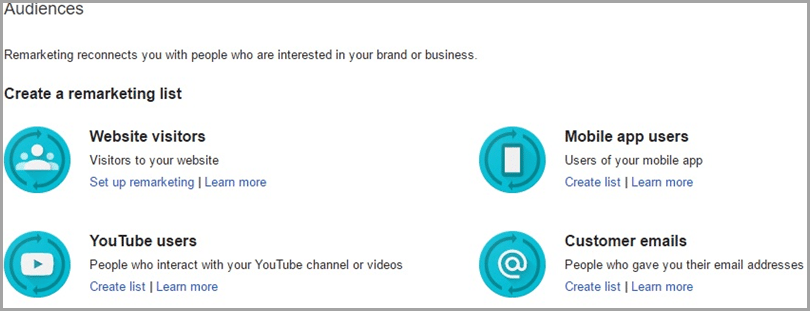
2. RUNNING NEVER ENDING CAMPAIGNS
It’s easier to generate traffic with a short-term campaign where you can change the message and the contents of your adverts according to your metrics than commit to a long-term campaign.

3. USING TOO MANY KEYWORDS IN AN AD GROUP
Too many keywords may actually lower or diminish the overall relevancy of your ad. Fewer keywords have the potential of generating just as many clicks, and over time, you can increase the keywords as required.

4. LEAVING UNDER-PERFORMING KEYWORDS IN A CAMPAIGN
They take up too much of your budget, and adding new high performing keywords can generate plenty of clicks and conversions. Always make sure your keywords are precisely aligned with your business goals.
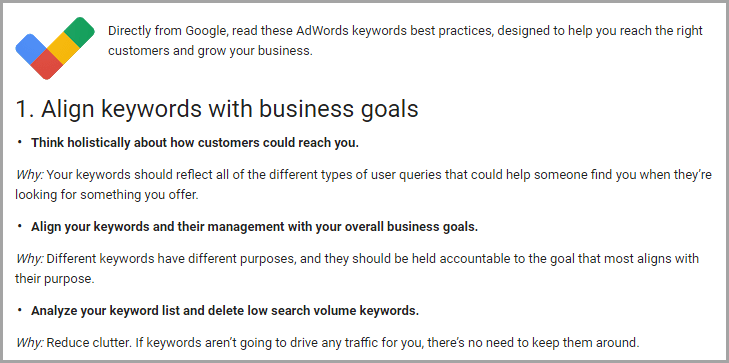
5. NOT INCLUDING PRODUCT IMAGES
Ecommerce ads that do not have product images will not attract customers, who naturally want to see what they are buying.
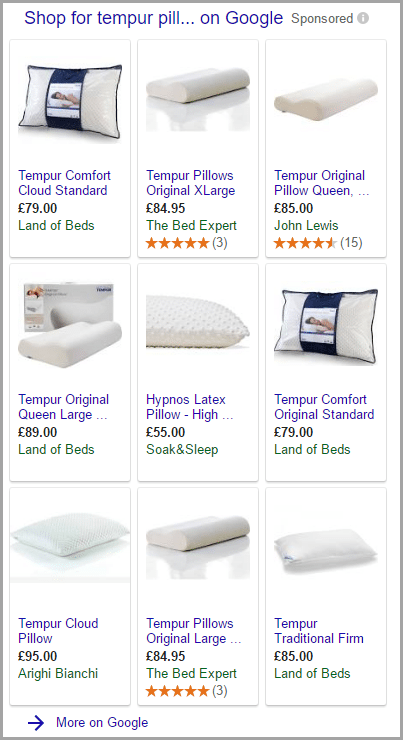
6. DISREGARDING VIDEO REMARKETING
I know I’ve already mentioned remarketing, but many people don’t consider using video. Remarketing using better images and video clips is a cost-effective way to gain returning customers.
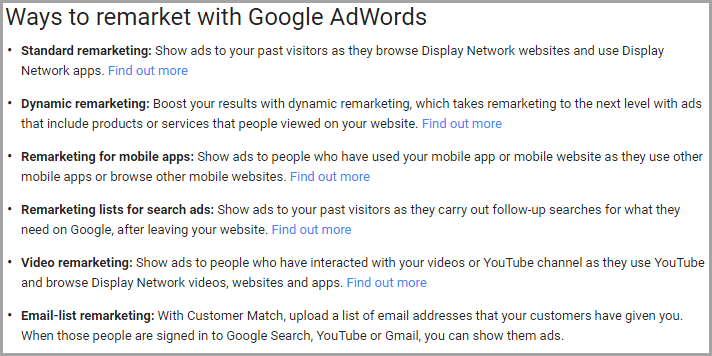
7. NOT DOING THE FINANCIAL MATHS ON EACH CLICK
It should be lower than the profit it generates, otherwise your PPC campaign is not working for you.
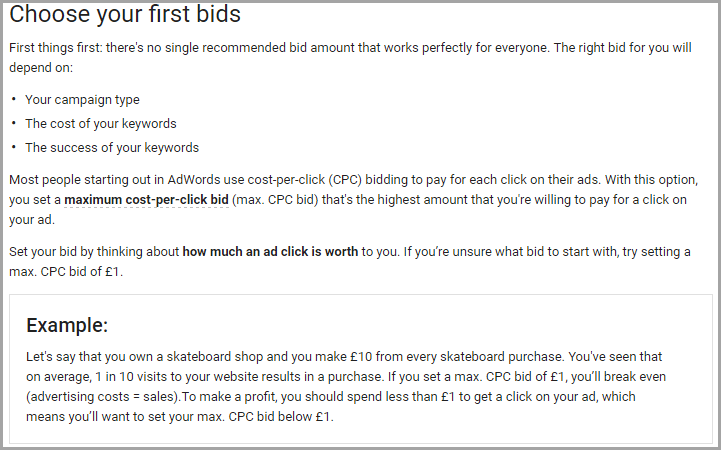
8. MAKING SPELLING MISTAKES
Make sure your ad is well-written and that your spelling, grammar and language are all accurate and adhere to the PPC rules.

9. SNOOZING ON THE JOB
Many marketers set up a campaign then forget about it. This is dangerous because someone can easily outbid you out of the top spot, plus search patterns can alter almost overnight, meaning that your keywords get searched less.
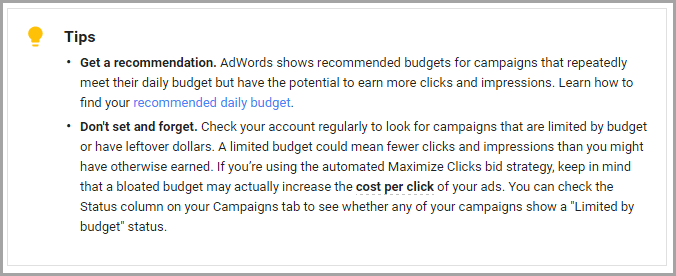
10. THINKING THAT ‘MORE CLICKS ARE BETTER’
Instead, focus on the returns you are making from your investment with conversion tracking.

WRAPPING UP
PPC advertising is now a fundamental must-have for digital marketing, particularly for anyone starting a small business or striking out as an entrepreneur. Used correctly, it can help increase your conversion rates and lower the cost of customer acquisition.
Setting up and managing a campaign can sometimes be challenging and time-consuming, but to efficiently generate traffic and maximize online advertising, it has to be done correctly. Otherwise you will run the risk of your PPC campaigns eating into your marketing budget.
Frequent campaign modification, updates, and keyword management are vital as they’re a sure way to generate targeted traffic and customer interest.
About Me

SAMEER KASMA
E-commerce & Digital Marketing Expert
Phone: +971-527805996
Email: kasmasamir@gmail.com
SEARCH
CATEGORIES
RECENT POST
 A Quick Guide for Google’s SEO Experience Update 2021SAMEER KASMA - 02 November
A Quick Guide for Google’s SEO Experience Update 2021SAMEER KASMA - 02 November Perfect Facebook Ads Funnel for Your BusinessSAMEER KASMA - 05 October
Perfect Facebook Ads Funnel for Your BusinessSAMEER KASMA - 05 October How to Setup YouTube 6 Seconds Bumper AdsSAMEER KASMA - 09 September
How to Setup YouTube 6 Seconds Bumper AdsSAMEER KASMA - 09 September How to Set Your Ecommerce Store for Black FridaySAMEER KASMA - 16 November
How to Set Your Ecommerce Store for Black FridaySAMEER KASMA - 16 November 15 Rules for Successful Email MarketingSAMEER KASMA - 17 September
15 Rules for Successful Email MarketingSAMEER KASMA - 17 September
ARCHIVES
- November 2021
- October 2021
- September 2021
- November 2020
- September 2020
- August 2020
- July 2020
- June 2020
- May 2020
- April 2020
- March 2020
- February 2020
- January 2020
- December 2019
- November 2019
- July 2019
- February 2019
- January 2019
- December 2018
- May 2018
- April 2018
- March 2018
- January 2018
- December 2017
- October 2017
- September 2017
- August 2017
- July 2017


